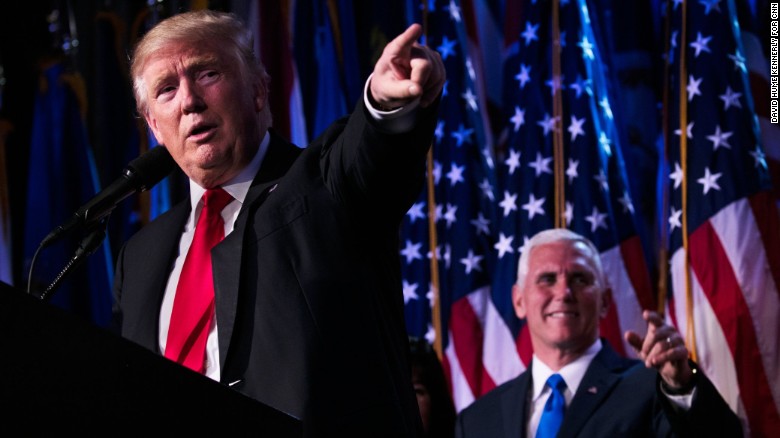
Donald Trump broke all the rules of the political world in his quest for the presidency — and won.
Trump began his pursuit of the presidency 19 months ago with a diatribe against undocumented immigrants from Mexico that labeled them murderers and rapists. As more conventional politicians in his own party recoiled, Trump insulted individuals like the much-revered Senator John McCain and whole groups such as all the world’s Muslims. The more that decent women and men — Mitt Romney for one — howled the stronger Trump grew.
Although candidate Trump refused to say he would accept the election’s result, and even suggested his opponent be impeached should she prevail, the country will undoubtedly recognize his victory at the polls.
Trump has always depended on the basic decency of those who he confronts, and it is a strategy that works. Indeed, by pushing past the usual limits and norms of politics he proved his own tactical brilliance and redeemed his claim that he understands what Americans want far better than ordinary politicians.
He detected the anxiety rampant among working-class voters in the industrialized world, which was evidenced in the United Kingdom’s “Brexit” vote in June. His instinct for conservative populism proved true.
In the process, he upended key aspects of Washington’s conventional wisdom:
Party unity is key
No candidate in memory was a more divisive figure within his party than Trump. Throughout the primary process that he dominated, Trump raised alarms with his treatment of fellow Republicans. However from “Low energy Jeb” to “Lyin’ Ted” he mowed them all down on the power of voter anger at the establishment in Washington. After winning the party’s nomination, he failed to make the expected “pivot” by moderating his views to win support from party elders.
Fame isn’t enough
Name recognition has never been considered sufficient to win a party nomination of the presidency. If it were, we would have had seen Jennifer Aniston elected long ago. However Trump began talking about a presidential run at a time when he was best known as a reality TV show host. This fame turned out to be the perfect springboard as the personality he presented on the campaign trail matched the one he offered on “The Apprentice” and voters deemed it authentic and worthy.
Paid media is essential
Trump refused to spend the money required to buy TV and radio time at a level that matched his opponent Hillary Clinton. Saturation of the airwaves has long been a staple of campaigns. Trump, who prefers social media platforms like Twitter, decided to go directly to his supporters on platforms that cost him nothing
Outreach to diverse voters is key
He defied the Republican Party’s “autopsy” from 2012, which GOP chairman Reince Preibus embraced, and which concluded the party had to reach out to Latino, African American, and women voters. Instead Trump banked on reconstructing much of the Reagan coalition which included many white working-class voters who would have been expected to vote for Democrats. Trump believed that enough of these voters remained in key states and would come to his side. They did.
You must have a robust campaign infrastructure
Former Obama strategist and current CNN analyst David Axelrod has said that the “ground game” activities that deliver voters to the polls can provide the margin of victory for a presidential hopeful. Trump eschewed this type of organizing as well as the more modern forms of get-out-the-vote work done online. He gambled that his personal popularity and charisma would be sufficiently motivating for his supporters, and he was right
Pollsters and professionals matter
During the primaries Trump and his rookie campaign manager Corey Lewandowski competed against a murderer’s row of established professionals. After a controversy made Lewandowski expendable, Trump still didn’t recruit very many top operatives to help his effort. Instead he tapped a core group, whom he mostly ignored, and kept command of the decision making in his own hands. Trump was certain he was smarter than them all, and he may have been right.
Altogether, Trump upset the natural order in American politics by applying an overwhelming amount of self-confidence and dismissing most of those who called for him to act in a more measured way. He proved that he didn’t have to act like anyone else to be elected. Now, as he faces the task of functioning as the president, we will see whether he’ll follow any of the conventions we expect to guide our chief executive and commander in chief.
One day before Trump’s upset victory, longtime Republican strategist Frank Luntz published a plea for political conciliation because “the greatest country in the history of civilization has become dangerously uncivilized.” Trump’s victory suggests that Luntz won’t soon see hear kumbaya he craves. Instead it signals the disruption of peaceable politics and the triumph of anger and resentment.
As reported by CNN
